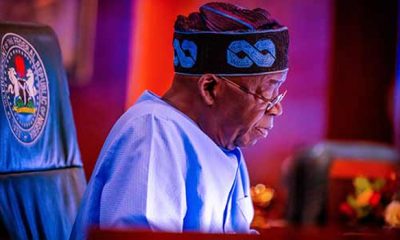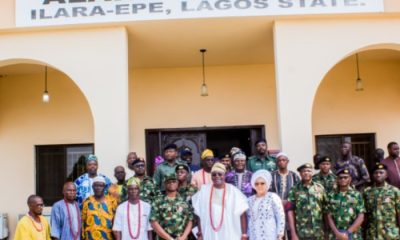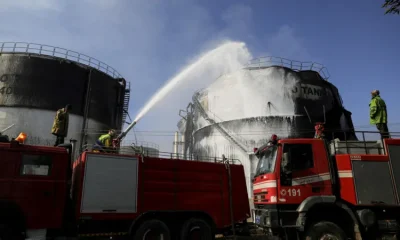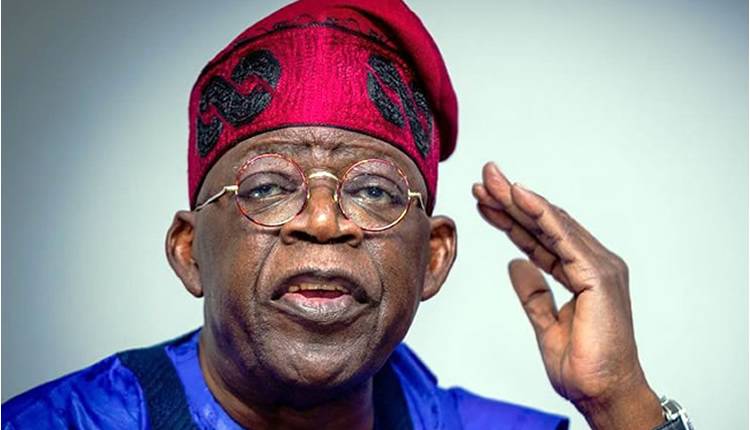Inauguration Of Bola Ahmed Tinubu as President of Nigeria
Inauguration Speech: Tinubu Unveils Economic Agenda To Propel Nigeria’s Prosperity, Job Growth
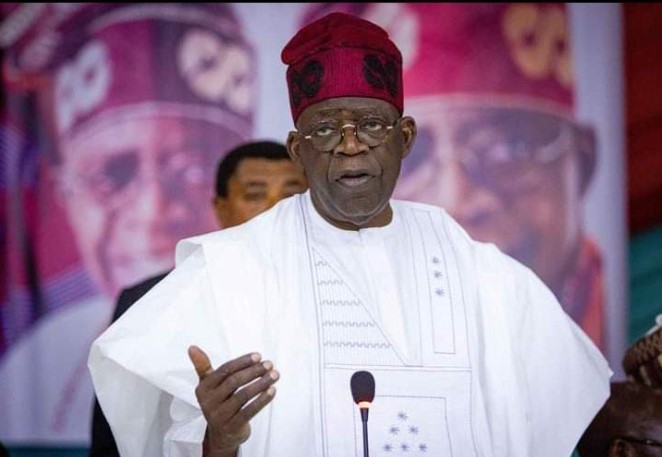
-
Tinubu has outlined his economic agenda, focusing on job creation, economic growth, and improved governance.
-
The administration aims to stimulate the economy through budgetary reforms, industrial policies, and enhanced electricity accessibility.
-
Efforts will also be made to strengthen security, prioritize infrastructure development, and address concerns in agriculture and monetary policies.
EKO HOT BLOG reports that in his inaugural speech delivered at the Eagle Square today, President Bola Ahmed Tinubu outlined his vision for Nigeria’s economic development and job creation.
Under the theme of “Progressive Good Governance,” the new administration aims to harness the potential of the nation and build a society that fosters compassion, unity, and shared prosperity.
Focusing on the economy, President Tinubu unveiled a comprehensive plan aimed at stimulating growth, reducing unemployment, and achieving higher GDP.
The administration’s approach includes budgetary reform to stimulate the economy without causing inflation, implementing industrial policies that promote domestic manufacturing and reduce import dependency, and improving access to affordable electricity for businesses and households.
The government also intends to address investors’ concerns by reviewing complaints about multiple taxation and anti-investment barriers, thus encouraging local and foreign businesses to thrive.
Job creation emerged as a key aspect of President Tinubu’s agenda, with a commitment to delivering one million new jobs in the digital economy.
The administration plans to work with the National Assembly to develop an omnibus Jobs and Prosperity bill. This bill will provide policy space for labor-intensive infrastructural improvements, support light industry, and enhance social services for vulnerable groups such as the poor and the elderly.
Recognizing the crucial role of agriculture in rural development and food security, President Tinubu outlined initiatives to secure rural incomes, reduce spoilage and waste, and increase production through agricultural hubs and value-added processing. The administration aims to guarantee minimal prices for crops and animal products, while introducing modern practices to the livestock sector. The ultimate goal is to make food more abundant and affordable, benefiting both farmers and consumers.
President Tinubu also pledged to continue the efforts of the previous administration in infrastructure development, prioritizing national networks of roads, rail, and ports. Furthermore, the administration intends to redirect the funds previously allocated to fuel subsidy toward public infrastructure, education, healthcare, and job creation, with the aim of improving the lives of millions.
Addressing monetary policy, the president highlighted the need for thorough housecleaning, including working towards a unified exchange rate and reducing interest rates to encourage investment and consumer purchasing. He acknowledged the challenges faced by Nigerians due to the currency swap policy and announced its review, with both currencies being treated as legal tender in the meantime.
In foreign policy, President Tinubu emphasized the importance of peace and stability within the West African subregion and the African continent. The administration will collaborate with regional bodies, such as ECOWAS and the AU, as well as international partners, to address conflicts and promote collective prosperity.
Click to watch our video of the week
Advertise or Publish a Story on EkoHot Blog:
Kindly contact us at [email protected]. Breaking stories should be sent to the above email and substantiated with pictorial evidence.
Citizen journalists will receive a token as data incentive.
Call or Whatsapp: 0803 561 7233, 0703 414 5611


